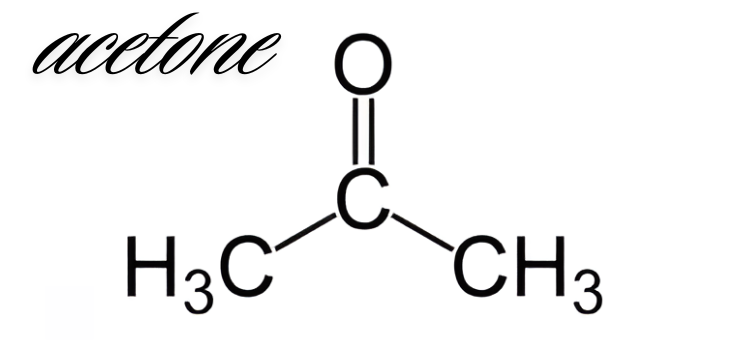Welcome to the intriguing world of acetone! If you’ve ever painted your nails, you’ve probably encountered this powerful solvent. But did you know acetone’s role stretches far beyond the beauty aisle? That’s right! This colorless, flammable liquid is a key player in a multitude of industries, from pharmaceuticals to manufacturing. Buckle up as we dive into the nitty-gritty of acetone’s, exploring its myriad uses, benefits, and a few quirky facts you might not have known.
What Exactly Is Acetone?
Acetone is a type of organic solvent, and it’s got some serious street cred in the chemical world. Scientifically known as propanone, it’s a simple ketone with the formula C₃H₆O. It’s known for its distinct smell and ability to dissolve a wide range of substances.
The Chemical Chops of Acetone
- Formula: C₃H₆O
- Molecular Weight: 58.08 g/mol
- Boiling Point: 56°C (132.8°F)
- Solubility: Miscible with water, ethanol, and ether
Acetone’s is often found in the “volatile” section of the chemical library, meaning it evaporates quickly. This trait makes it incredibly useful for cleaning and extraction processes.
Everyday Uses of Acetone
Most people are familiar with acetone’s in the context of nail polish remover. But its applications go far beyond keeping your nails chip-free. Let’s take a closer look at some surprising uses!
1. Nail Polish Remover
This is probably the most well-known use for acetone’s. It’s a staple in many beauty routines, effortlessly stripping away old polish to make way for a fresh coat.
2. Industrial Solvent
In the manufacturing world, acetone is a go-to solvent. It’s used to clean machinery, dissolve plastic, and even in the production of pharmaceuticals.
3. Cleaning Agent
Got sticky residues or greasy messes? Acetone’s can tackle those tough spots. It’s perfect for cleaning surfaces and removing adhesives.
4. Cosmetics
Beyond nail polish remover, acetone’s is used in some cosmetics and skincare products. It helps to dissolve certain ingredients and deliver a smooth texture.
5. Laboratory Uses
Scientists and researchers use acetone’s as a solvent in various experiments and procedures. Its ability to dissolve a wide range of substances makes it indispensable in labs.
Safety First: Handling Acetone
While acetone’s is incredibly useful, it’s also important to handle it with care. Here’s what you need to know to stay safe.
Dos and Don’ts of Acetone Handling
- Do: Use acetone’s in well-ventilated areas to avoid inhaling fumes.
- Don’t: Expose acetone’s to open flames or high heat, as it is highly flammable.
- Do: Store acetone’s in a cool, dry place away from direct sunlight.
- Don’t: Use acetone’s on sensitive skin or near your eyes without proper protection.
Protective Gear
- Gloves: Wear gloves to protect your skin from prolonged exposure.
- Masks: Use a mask to avoid inhaling vapors, especially in large quantities.
- Goggles: Protect your eyes from splashes or spills.
The Science Behind Acetone: Why It Works
Ever wondered why acetone’s is so effective at dissolving stuff? It all comes down to its chemical structure. Acetone’s polar nature allows it to interact with a variety of substances, breaking down their molecular bonds and making them easier to clean or remove.
Molecular Magic
- Polarity: Acetone’s polar molecules can interact with both polar and non-polar substances.
- Evaporation: Its low boiling point means it evaporates quickly, leaving surfaces dry and clean.
FAQs About Acetone
What happens if you accidentally ingest acetone?
Ingesting acetone can be harmful and lead to nausea, vomiting, or more severe health issues. If this happens, seek medical attention immediately.
Can acetone damage my furniture?
Yes, acetone can damage certain types of furniture finishes. Always test a small, inconspicuous area first or consult a professional if you’re unsure.
Is acetone environmentally friendly?
Acetone is biodegradable, but it can still contribute to air pollution if not used properly. It’s best to use it in moderation and dispose of it according to local regulations.
Can acetone be used to clean electronics?
Acetone can be used to clean some electronics, but it should be done with caution. Always ensure the electronic device is, powered off and disconnected from any power sources before cleaning.
Fun Facts About Acetone
- Acetone in the Cosmos: Acetone is, found in trace amounts in the atmosphere of Venus and Saturn’s moon, Titan. Who knew?
- Historical Use: Acetone has been used for centuries, with early references dating back to ancient Greece, where it was used in the production of certain dyes.
- Natural Occurrence: Acetone is, naturally produced by the human body in small quantities during the breakdown of fats.
Conclusion
Acetone is far more than just the stuff that removes your nail polish! From its vital role in industrial applications to its everyday uses in cleaning and cosmetics, acetone’s is a true unsung hero of the chemical world. As with all powerful solvents, it’s important to handle it with care and respect. So next time you reach for that nail polish remover, take a moment to appreciate the science and versatility packed into that little bottle. Cheers to acetone’s—one of chemistry’s coolest compounds!

